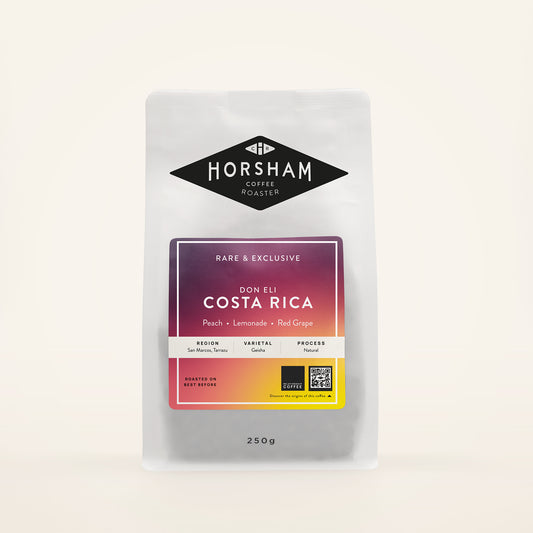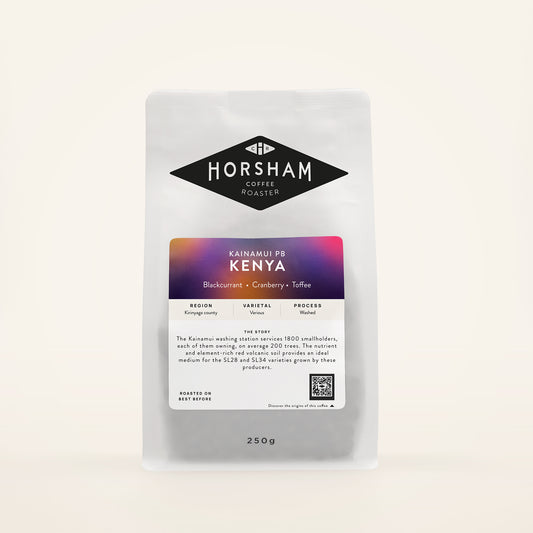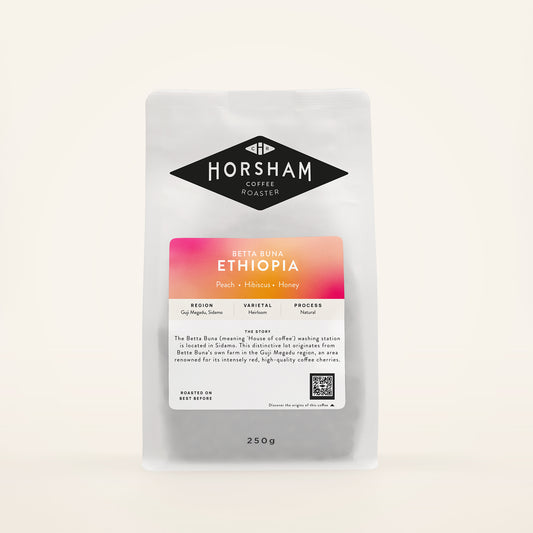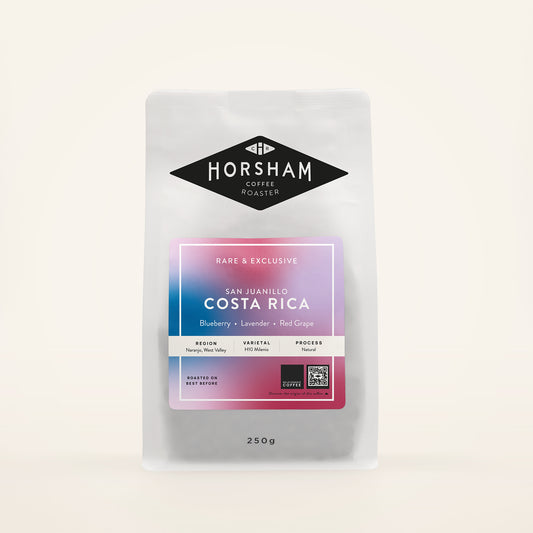Women coffee producers in speciality coffee farming
While it still remains a heavily male-dominated industry, female producers are increasingly paving the way in the scene of speciality coffee farming. One of our commitments as a buyer of beans, who strive to do good by the farmers, is to support the work of female growers and give them the support that they need to shine.
Florence Karambu, one of the most respected coffee producers in Kenya who we were fortunate to have met at her farm in 2016.

Due to a variety of factors, gender equality has been a persistent issue within coffee farming. But, it’s a problem that’s increasingly being recognised, and coffee consumers are using their influence to do something about it.
While it is - by the nature of the rural areas required for coffee production, making it a craft that is predominately undertaken by remote communities - difficult to garner a truly accurate insight into the role that female coffee producers have, it is incredibly important to attempt to conduct this assessment. As this vital work provides the key to pinpointing the flaws and discrimination that exists in the speciality coffee industry.
The International Trade Centre has conducted a thorough analysis into the roles that women typically play in speciality coffee production. Although the study was conducted back in 2008, nonetheless, the insightful breakdown provided by the report reveals the starkly disproportionate gender-based split between labour and earnings.
The analysis found that while, typically, fieldwork and harvest consisted of 70% female workers, and sorting 75%, only 10% of either in-country trading or export functions were undertaken by women. Whereas, in terms of the rates of female land, business and asset ownership, only 20% of land used for coffee production was owned by women, and only 10% of domestically traded coffee, or companies in the coffee sector, were owned by women.
As asserted by this study, the main jobs that women in this industry typically possess are the manual labour required in coffee production, instead of the key managerial roles that require initiative, ownership or monetary exchange. What’s more, poorer female coffee producers have restricted access to the training or business networks that would enable them to significantly improve their trade.
But, according to the recent SCAA White Paper, A Blueprint for Gender Equality in the Coffeelands, this restriction of their agency is not reflective of female coffee producers’ workload - in fact, despite their restrictive positions and limited income, women typically have a far longer working day. The report stated that “men were found to have an 8-hour workday, while women worked up to 15 hours per day.”
In a similar study that took place in 2016, the Food and Agriculture Organization of the United Nations (FAO) found that female agricultural labourers in developing countries “are especially disadvantaged, with fewer endowments and entitlements than men, even more limited access to information and services, gender-determined household responsibilities, and increasingly heavy agricultural workloads owing to male out-migration.”
The concept of ‘out-migration’ refers to the fact that men are increasingly migrating away from rural areas that produce crops such as coffee. This then, in turn, means that there is a potential for future generations of women - although they are being left behind to continue employment in the less opportunistic area of agricultural farming, there is hope that they will be able to seize this agency and shape this industry as they see fit. Increasingly, these women are being given the chance to reclaim speciality coffee production.
The work of organisations like The International Women’s Coffee Alliance (IWCA), The Partnership for Gender Equity and Barisa Connect, just to name a few, are imperative to facilitating the ongoing gender equality that we wish to see in coffee production.
Two examples of two female coffee growers that we have been able to establish partnerships with are our Peruvian Cafe Femenino Organic variety, and the Colombian La Cumbre Natural coffee.
Colombia La Cumbre
Our La Cumbre Natural coffee is a variety with a flavour that is nothing short of wild. These funky beans come from a family farm owned by Ana Cecilia Uribe, and her innovative, independently operating family have become nationally renowned for their characteristically dry manner of coffee processing.
Peru Cafe Femenino
Cafe Femenino is a project that is designed to empower and support the fantastic work of female coffee producers from all over the world. Based in the Lambayeque region of Peru, this coffee is produced by around 800 female producers.

It all began back in 2004, when 464 female farmers set up their own coffee production. This enabled them to create their own product and generate their own income, entirely separate from male influence. The women who work in remote coffee communities often find themselves trapped in impoverished circumstances and male-dominated societies, however this project has returned financial and social independence to these women. It has, over the course of the following years, received the support of organisations like CECANOR and the Organic Products Trading Company, and today it continues to grow from strength to strength.
One of the (many) benefits that comes with being a part of the speciality coffee industry is the fact that we are far more connected with the growers of the produce that we receive. Rather than receiving a faceless bag of supermarket coffee beans that have been grown ‘somewhere’ in South America, we are immensely proud of our commitment to transparency. With a Horsham bag of beans, our packaging boldly and proudly shouts out about the life story of your yummy cup of coffee.
This is not just because we’re nerdy about terroir and the impact of climate, but because we also want to show off the incredible craftsmanship of the wonderful farmers that it is our joy to work with.
This knowledge and focus on transparency also means that direct-trade and infinitely fairer practices are firmly at the heart of the UK’s speciality coffee market. It’s certainly not enough for the coffee to taste good - our ethically conscious customers and the roasters that share the speciality stage with us place an unwavering value on the fact that the beans they buy do good. And that’s what we love about this industry.




